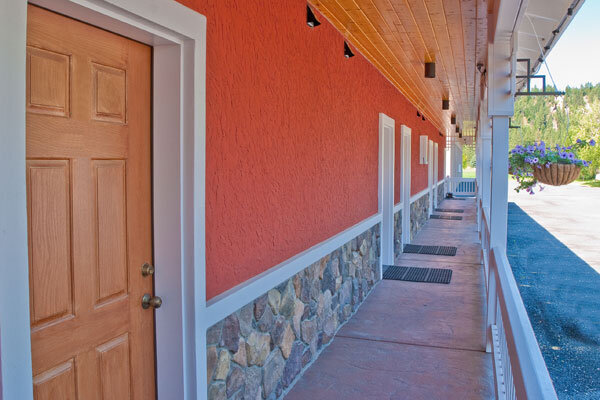Acquiring a hotel is an exciting endeavor! It’s also a significant investment not only in terms of money but in terms of time and other resources. Before making commitments, you need to be sure that the return on your investment will be worth it.
The good news is that 82.5 percent of food service and accommodation businesses survive their first year, and 55.30 percent survive their first five years, according to the U.S Bureau of Labor Statistics. The odds aren’t bad and, depending on the property you buy, you may not even be starting from scratch.
To set yourself up for the best chance of success, there are important factors to think about to inform your business strategy, whether you’re an individual looking to purchase a BnB and make a go of it or a manager scouting for the latest addition to your hotel group’s portfolio.
Your Vision
You need an idea in your head (later made into a written document) of how you want your property to turn out. Which guest segments do you plan on catering to, and how does your unique selling proposition appeal to those guests?
Develop goals to keep in mind, and make those goals specific, measurable, achievable, relevant, and time-bound (SMART). How does the property you plan on purchasing achieve your goals?
Financials
This one may seem obvious, but it’s extremely important. Go over the property’s finances with a fine-toothed comb and measure how operating costs stack up against your budget. It’s also a good business strategy to add another 30 percent into your budget for extra expenses.
Study past finances over a period of several years to get the most accurate and complete information possible. If you bought a hotel in 2021 and only looked at the P&L for 2020, your view would be very skewed. An expanded time frame prevents this from happening. It also makes it easier to spot trends. Is the property’s revenue trending up or down? Know whether the owners are selling because it’s time to retire or because the property is losing money.
Look at common, and not-so-common, hospitality metrics such as occupancy rate, market penetration index (MPI), and TrevPAR. Don’t neglect revenue sources that don’t come directly from rooms. Selling food and beverages, spa services, and other ancillaries keeps properties in the black.
The Building
The property’s building should be well maintained and up to code. Check the local building regulations and ask to see any maintenance records for the property. If the HVAC hasn’t been looked at in a decade, it will likely go kaput once you take over.
Ideally, the building should look nice as well. If it doesn’t, you’ll need to factor the cost of renovations into your purchasing budget. Pro tip: Renovations are not only an opportunity to put your own stamp on your new hotel but to make the property sustainable and save on energy costs down the road.
Assess the facilities and amenities on site and ask yourself whether or not they will meet the expectations of your target guest segments. If not, those are additional costs you have to take into consideration.

Contracts
Know the property’s current legal obligations. Is it part of a franchise? As part of a franchise, you are bound to their regulations, exchanging a portion of your freedom for the brand’s resources and recognition (everyone knows what to expect from a Hyatt). Be aware that if the property is already part of a franchise, and you would prefer to operate it independently, substantial penalties can be imposed for breaking those agreements early.
If you’re new to hospitality, you may be planning to employ a management company to take care of day-to-day operations. If there is already a management contract in place at the property, be sure to look it over.
Location
You know what they say: “Location, location, location!” A hotel’s location affects its profitability. Your hotel should be close to your area’s attractions, even a few blocks can impact revenue.
Location determines the kind of guests that you’re able to attract. Opening a hiker’s hostel in the middle of Manhattan won’t fly. Conversely, if you cater primarily to truckers and other road warriors, “highway adjacent” is a feature, not a bug.
Don’t rely on Google Earth to give you the information you need. Visit the property’s neighborhood at different times of day to be sure you have the full picture.
Lastly, look into the area’s rules and regulations before you buy, not only current regulations but any that might come into play in the near future. Not doing so can cause serious problems. For instance, you wouldn’t want to have bought a Manhattan AirBnB right before New York’s strict new short-term rental regulations went into effect.
Make sure you’re aware of all taxes you’ll have to pay and if there are any tax credits you can apply for as those significantly impact your take-home profits.
The Local Hospitality Market
Your property’s financials aren’t the only ones that matter. How is the industry in your area doing as a whole? This determines how risky your investment is. For example, San Francisco has run into reputational troubles and found it harder to bounce back from the pandemic than other major cities, so purchasing a hotel there could be chancier. On the other hand, this risk could strengthen your position during negotiation and help you secure a great deal.
The local hospitality market impacts your ADR and the rates you can charge. If you hope to charge $200 a night, but your competitors are all charging around $150, then your occupancy rates will likely suffer.
Knowing your competitors is important for more than your pricing strategy. Finding out what they offer and do well helps you identify gaps in the market and gives you new ideas to flesh out your unique selling proposition.
It doesn’t hurt to pay attention to wider trends as well. For example, lifestyle hotels are being snapped up right now, and they’ve enjoyed a higher premium in the past 2013-2023 decade.
Staff
Meet who is going to work for you and assess how competent they are (you can also have a friend or relative call the property and check what the customer service is like). Be warm and friendly and see if they reflect that energy back. Ask them what they need to do their jobs better and/or make their workday less stressful. Pro-tip: Find out how staff are currently trained at your property. What onboarding/ongoing support is there?
Company review sites like Glassdoor can be helpful for getting an idea of the current company culture. Is there a decent work/life balance, or do employees constantly talk about being burnt out? If it’s the latter, you won’t have much built-in goodwill, and the property may be understaffed.
Eighty-two percent of American hotels have a staffing shortage. Labor costs are on their way up, and workers are striking for better conditions. Rethink your investment if it looks like conditions at the property are driving staff to the picket lines…
Technology
A hotel’s technology is a crucial component of the experience for both guests and staff. Is it non-existant or outdated? How much will it cost you, both in terms of fees and in terms of time? When your staff have to take extra time wrangling your technology or processing tasks manually, they have less time for guests.
Look for a tech stack that makes operations more efficient, not less. Nowadays, there are plenty of innovative hotel software solutions to choose, from cloud-based property management systems (the cornerstone of your tech stack) to SMS guest messaging platforms. Hint: Talk to staff about the property’s current technology and its usefulness. If it isn’t up to snuff, you’ll need to upgrade that as well.
Reputation
A property’s reputation also affects its profitability. The reputational effect of a one-star increase in a hotel’s reviews can cause up to 2.3 percent higher revenue each month. Guests are more likely to book a hotel that other guests have already raved about (they won’t have to learn the hard way for themselves). It’s worth knowing if you’re going to be riding high or starting every review response with “under new management.”
Take a peek at the property’s website and social media pages. Do those need a revamp? The effect of a poor online presence is the same as the effect of a shabbily furnished lobby; it makes a bad first impression and erodes your credibility. A website revamp, if you need one, can cost another couple thousand dollars or more.
Consult the Experts
You are not an expert in all of these things, so work with people who are. A buying team can consist of a hotel broker, accountant, lending professional, hotel valuation and appraisal firm, asset manager, property inspector, and more. If you’re not sure about something, ask a professional!
Buying a hotel can seem full of promise, but it pays to do your research to start yourself and your business off on the right foot. Assessing each of the above factors saves you headaches—and dollars—further down the line when you’re in charge and ensures the price you pay for a property is fair.

